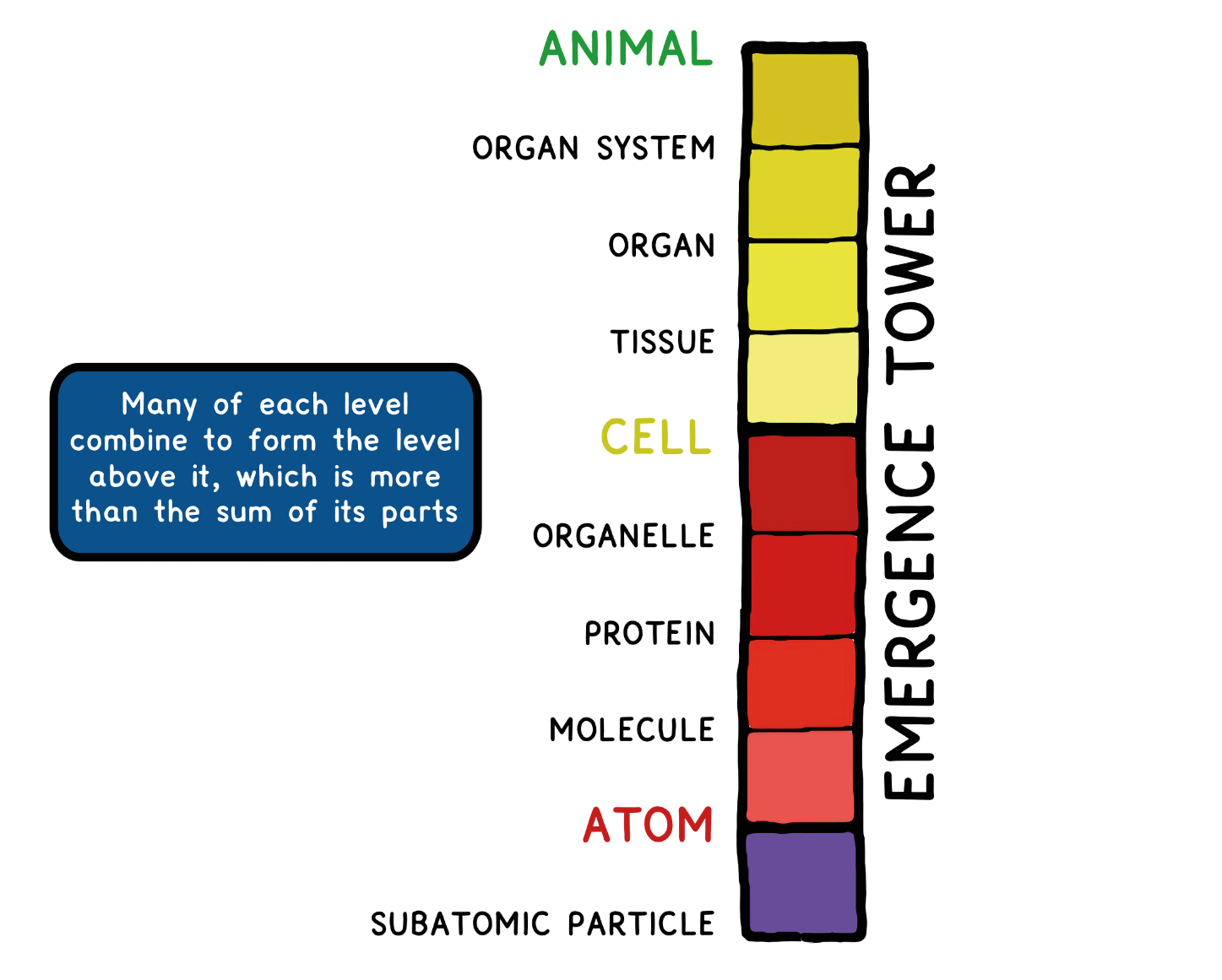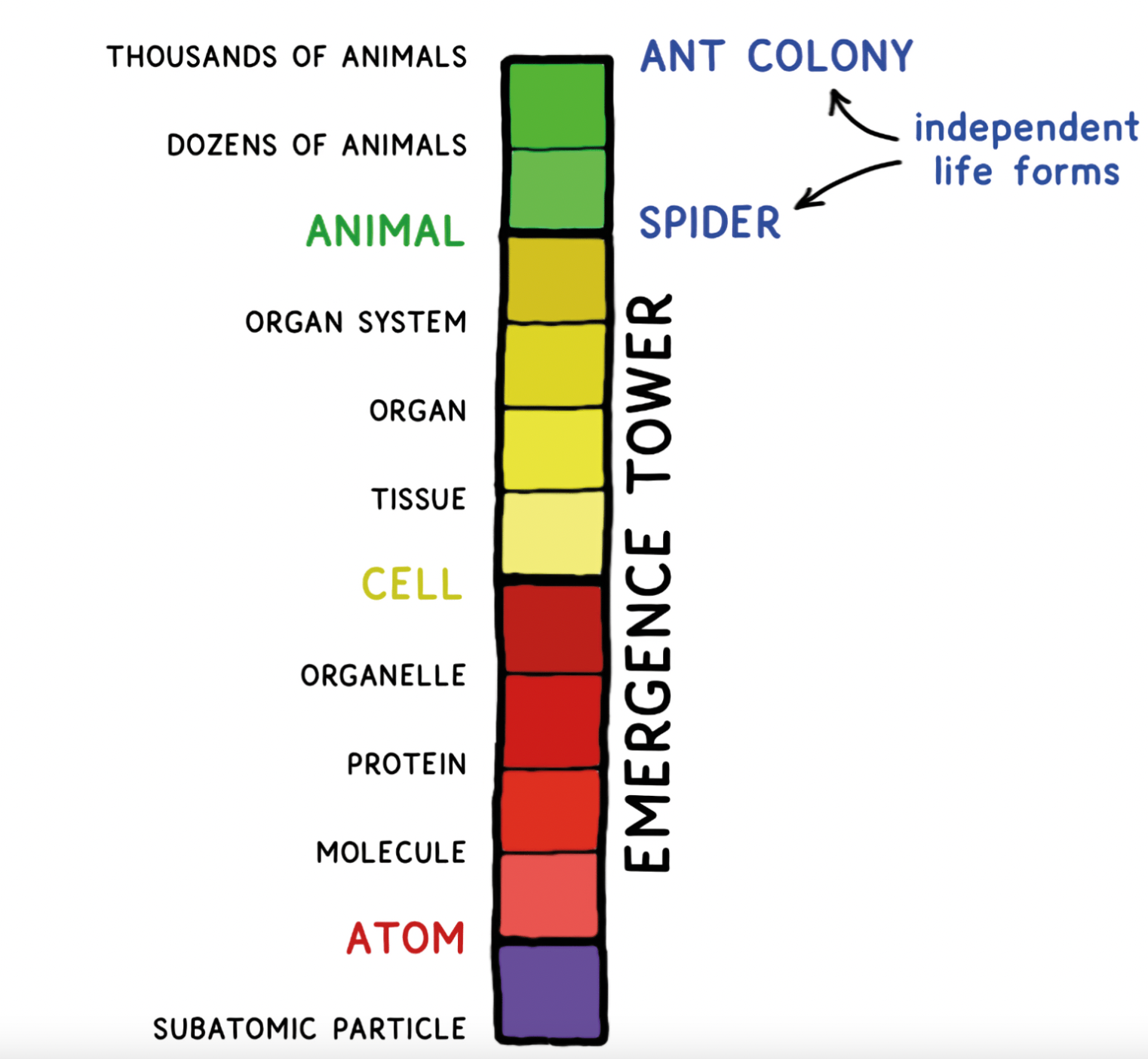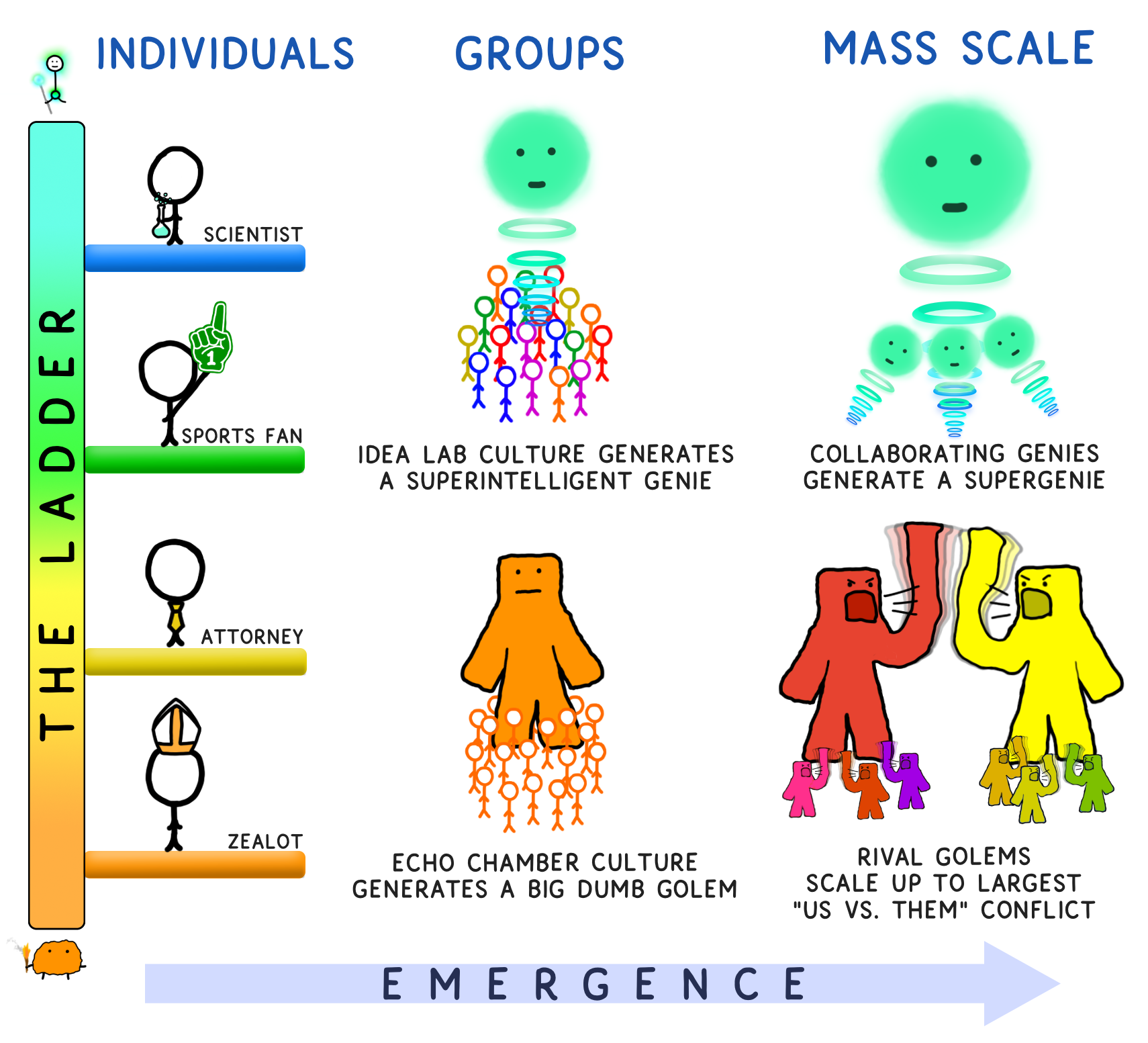On genies and golems
This post is part of a series on Tim Urban’s book, What’s Our Problem? a self-help book for societies.
--
Building on his idea of the thinking ladder (see here for a quick recap) and distinguishing how we think from what we think, Tim Urban introduces the concept of the Emergence Tower to show how humans think and behave in groups, small and large.
Emergence is the concept of many smaller things coming together to form a greater whole. One way to understand this is with the example of Legos. Each Lego block by itself doesn’t look like much. But when you put a bunch of blocks together in a particular way, you get amazing things like Lego cars and spaceships. Something similar happens in living organisms, and here’s a helpful way to visualize it:

Emergence can stop at the individual level (ex. spiders) or keep going until there are hundreds or even thousands of animals (ex. ants). Ants are much less likely to survive away from their colony—the ant colony is really the independent life form.

Humans, unlikely other animals, have the ability to go up and down the Emergence Tower. While we’re capable of functioning by ourselves and often value our autonomy, we’re still social creatures at the end of the day. We have families but we also cooperate at a mass scale as citizens of countries.
How we think impacts what the emergent group of humans looks like.
In Idea Lab cultures, where individual thinking is valued and changing your mind based on evidence is encouraged, “new findings spread quickly through the system, and all it takes is one member discovering a falsehood for the whole group to reject it.” It follows that the overall group is better at learning new things and separating fact from fiction relative to any individual. Urban calls this emergent thinking system a genie, one that is greater than the sum of its parts.
In cultures dominated by Echo Chambers, on the other hand, conformity is rewarded and a tribal us vs. them mentality is the norm. The group’s ideas are considered sacred and not open to change. Cognitive biases that hamper individual thinking are actually strengths in such a group, which Urban calls a golem. The end result is groups that always internally agree, externally disagree, and place group agreement above the goal of figuring out the truth.

We have a natural tendency towards tribal golem-like behavior because that’s how we survived in the ancient world before we learned to cooperate in groups of more than a few thousand people. But the same behaviors are now getting in our way of making progress as a species.
In future posts, we'll explore how we might limit Echo Chambers and promote Idea Labs.